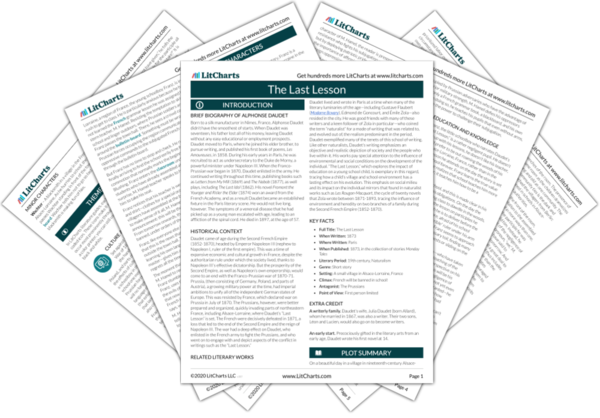The bulletin-board that hangs outside the town hall represents the oppression of the Prussian occupiers who have invaded the region of Alsace-Lorraine, where the village that is home to the narrator, Franz, is located. Franz tells the reader that over the two years of Prussian occupation, all of the village’s bad news had come from the board. The foreign occupiers communicate their repressive edicts and commands there. Indeed, on the day the story is set, a crowd is gathered around the board reading a new notice. Only after arriving in school to M. Hamel’s shocking announcement that this will be the last lesson in French does Franz realize that this must have been the new regulation posted on the board by the Prussian authorities. As such, the board symbolizes the despotism of the Prussian occupiers, who, day by day, curtail the freedoms of the French villagers. The bulletin-board is contrasted with the blackboard at the end of the story, an instrument of education that M. Hamel and his pupils have access to, and which the teacher uses to inscribe and affirm his and the villagers’ deep sense of patriotism and resistance.
The Bulletin-Board Quotes in The Last Lesson
When I passed the town hall there was a crowd in front of the bulletin-board. For the last two years all our bad news had come from there—the lost battles, the draft, the orders of the commanding officer—and I thought to myself, without stopping, “What can be the matter now?”

Unlock explanations and citation info for this and every other The Last Lesson quote.
Plus so much more...
Get LitCharts A+









